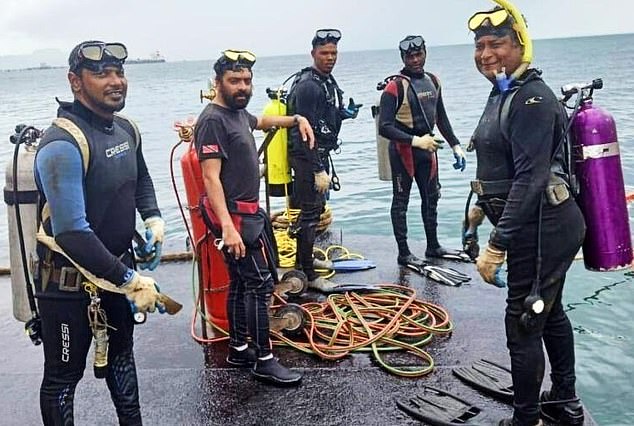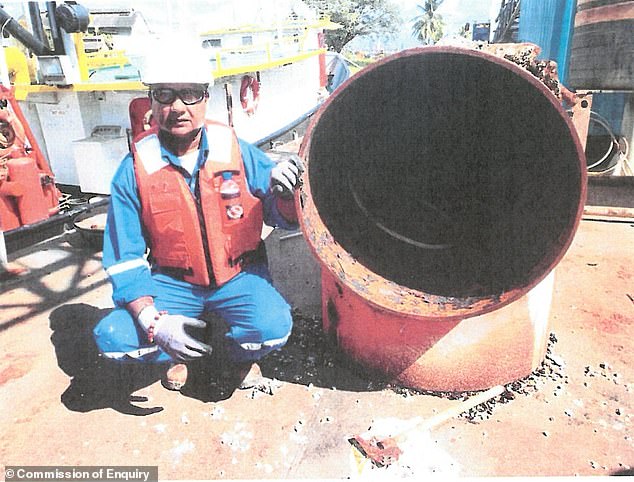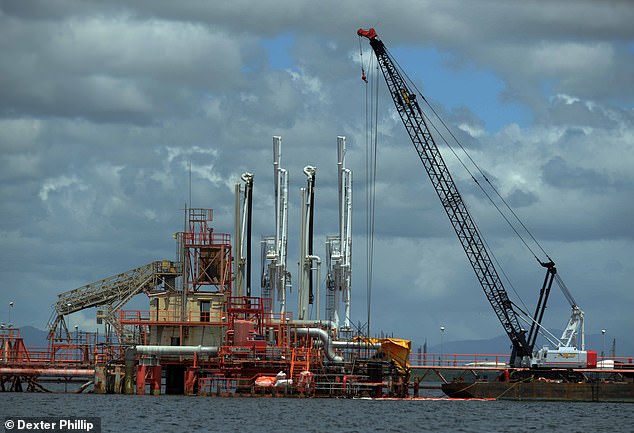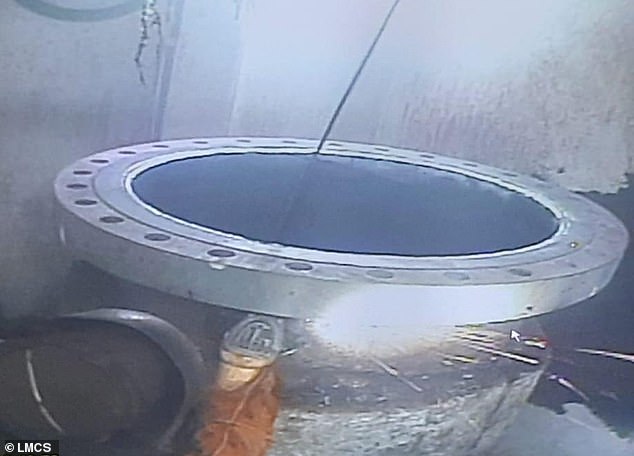On the latest episode of the Daily Mail’s Pipeline podcast, reporter Isabelle Stanley interviews witnesses, diving experts, and lawyers involved in the official enquiry into the Caribbean diving disaster.
In February 2022, five divers were sucked into a 30-inch pipe they were repairing off the coast of Trinidad and Tobago.
Despite one of the divers, Christopher Boodram, escaping after an unimaginable three-hour ordeal, rescue attempts for the remaining four were repeatedly blocked, leaving them to die slowly in what became a national scandal.
The pipe was managed by Paria, one arm of Trinidad’s state-owned oil company.
In the aftermath of the tragedy, Trinidad’s then-Energy Minister Stuart Young launched an official enquiry, led by one of the UK’s top international criminal barristers, Jerome Lynch KC.
Speaking to the podcast, Lynch remembered his shock when Michael Wei, Paria’s Technical Maintenance Manager who acted as Logistics Chief during the incident, sensationally claimed efforts to rescue the men were ‘excellent’.

The tragedy sparked a national scandal in Trinidad, and billboards demanding justice still line street corners to this day. Listen here

The pipe was managed by Paria, one arm of Trinidad’s state-owned oil company
Previous episodes heard how the oil company blocked a team of experienced volunteer divers, who were willing to risk their lives to save the men, from entering the pipe.
The Enquiry established that Paria’s Incident Commander, Collin Piper, obsessed about getting a camera into the pipe to assess the conditions inside and – despite claiming to take advice from expert divers on site – did not speak to one waiting professional until after 9.30pm, while another dive company waited for eight hours with no one from Paria speaking to them at all.
Autopsies would later reveal that one of the four men trapped inside the pipe may have been alive for up to 39 hours.
‘It took people’s breath away’, Lynch said on Wei’s testimony.
‘It was just an unbelievable moment. Somebody responsible for trying to rescue these men had completely failed to understand what they had achieved was essentially nothing.
‘That moment told you everything you needed to know about the attitude the management of Paria had taken.’

Previous episodes heard how the oil company blocked a team of experienced volunteer divers, who were willing to risk their lives to save the men, from entering the pipe

Autopsies would later reveal that one of the four men trapped inside the pipe may have been alive for up to 39 hours
Now that proceedings have concluded, Stanley asked Lynch where he believes fault lies for the tragedy, three years after he oversaw the enquiry.
‘It was the failure of a whole series of people’, the barrister said.
‘I do have a certain sympathy with an approach in which the company might have taken time to justify risking anybody going into that pipe when they didn’t even know for a 100 percent that they were in there and that they were alive.
‘But once Christopher came out of that pipe, two and a half hours or so later, they knew for sure that they were in the pipe and they knew for sure that they were alive.’
‘I think Paria didn’t expect anything like this to happen. They were completely paralysed and, in one sense, it was easier to do nothing than to risk anybody else’s life.
‘But there were those who were prepared to risk their lives to rescue them. I just don’t get it – why wouldn’t you have facilitated a way in which something could be done?
‘To me, it is unforgivable that no real attempt was made to rescue those men.’
Almost a year after the enquiry finished, Lynch produced a 380 page report into the disaster.
He found that Paria had effectively prevented efforts to rescue the trapped divers, concluding that their action on that day could be characterised as gross negligence.
Lynch urged Trinidad’s Director of Public Prosecutions to consider charging Paria with corporate manslaughter.
To hear the podcast’s full analysis of the inquiry, featuring the opinions of the experts involved and of witnesses to the tragedy, search Pipeline now, wherever you get your podcasts.











